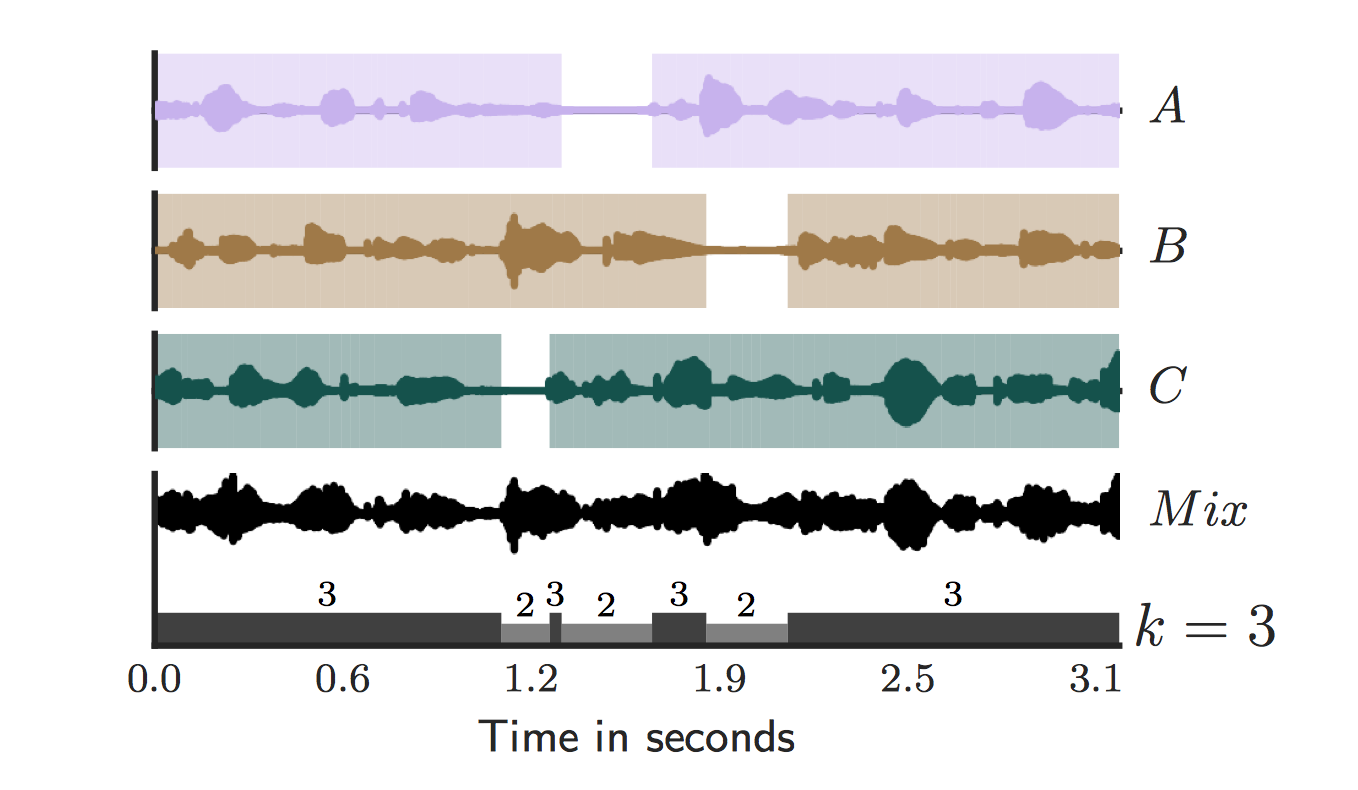CountNet is a deep learning model to estimate the number of concurrent speakers from single channel mixtures is a very challenging task that is a mandatory first step to address any realistic “cocktail-party” scenario. It has various audio-based applications such as blind source separation, speaker diarisation, and audio surveillance.
This repo provides pre-trained models.
- Title: CountNet: Estimating the Number of Concurrent Speakers Using Supervised Learning Speaker Count Estimation
- Authors: Fabian-Robert Stöter, Soumitro Chakrabarty, Bernd Edler, Emanuël A. P. Habets
- Preprint: HAL
- Proceedings: IEEE (paywall)
- Title: Classification vs. Regression in Supervised Learning for Single Channel Speaker Count Estimation
- Authors: Fabian-Robert Stöter, Soumitro Chakrabarty, Bernd Edler, Emanuël A. P. Habets
- Preprint: arXiv 1712.04555
- Proceedings: IEEE (paywall)
A demo video is provided on the accompanying website.
This repository provides the keras model to be used from Python to infer count estimates. The preprocessing dependes on librosa and scikit-learn. Not that the provided model is trained on 16 kHz samples of 5 seconds duration.
Docker makes it easy to reproduce the results and install all requirements. If you have docker installed, run the following steps to predict a count from the provided test sample.
- Build the docker image:
docker build -t countnet . - Predict from example:
docker run -i countnet python predict.py --model CRNN examples/5_speakers.wav
To install the requirements using Anaconda Python, run
conda env create -f env.yml
You can now run the command line script and process wav files using the pre-trained model CRNN (best peformance).
python predict.py examples/5_speakers.wav --model CRNN
The full test dataset is available for download on Zenodo.
The dataset contains a simulated cocktail party environment of [0..10] speakers, mixed with 0dB SNR from random utterances of different speakers from the LibriSpeech CleanTest dataset.
For each recording we provide the ground truth number of speakers within the file name, where k in, k_uniquefile.wav is the maximum number of concurrent speakers with the 5 seconds of recording.
All recordings are of 5s durations. For each unique recording, we provide the audio wave file (16bits, 16kHz, mono) and an annotation json file with the same name as the recording.
In the annotation file we provide information about the speakers sex, their unique speaker_id, and vocal activity within the mixture recording in samples. Note that these were automatically generated using a voice activity detection method.
In the following example a speaker count of 3 speakers is the ground truth.
[
{
"sex": "F",
"activity": [[0, 51076], [51396, 55400], [56681, 80000]],
"speaker_id": 1221
},
{
"sex": "F",
"activity": [[0, 51877], [56201, 80000]],
"speaker_id": 3570
},
{
"sex": "M",
"activity": [[0, 15681], [16161, 68213], [73498, 80000]],
"speaker_id": 5105
}
]python eval.py ~/path/to/LibriCount10-0dB --model CRNN outputs the mean absolute error per class and averaged.
| Name | Number of Parameters | MAE on test set |
|---|---|---|
RNN |
0.31M | 0.38 |
F-CRNN |
0.06M | 0.36 |
CRNN |
0.35M | 0.27 |
Yes, its possible. But I was unable to get identical results when converting model. I tried this guide but it still didn't help to get to the same performance compared to keras 1.2.2 and theano.
MIT
